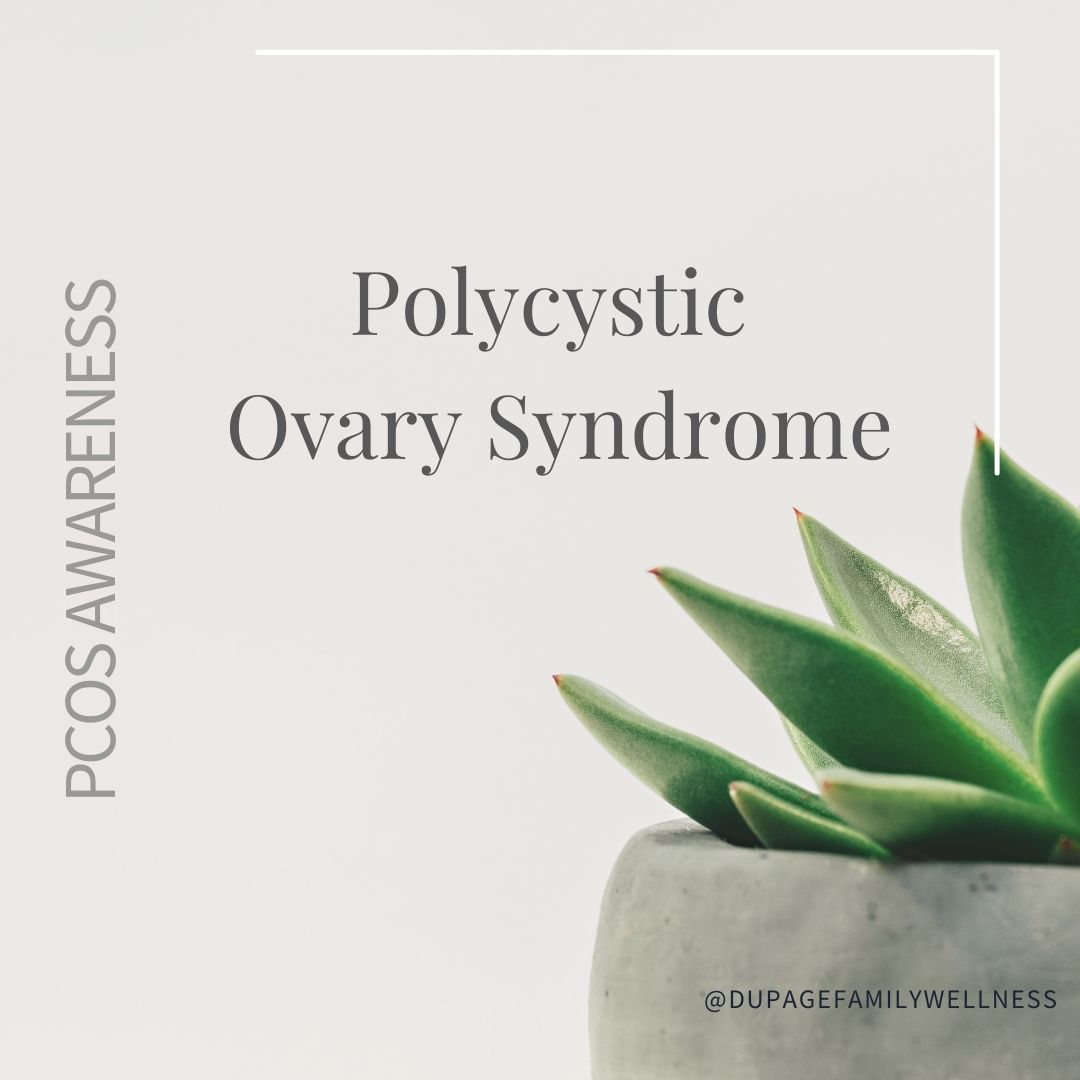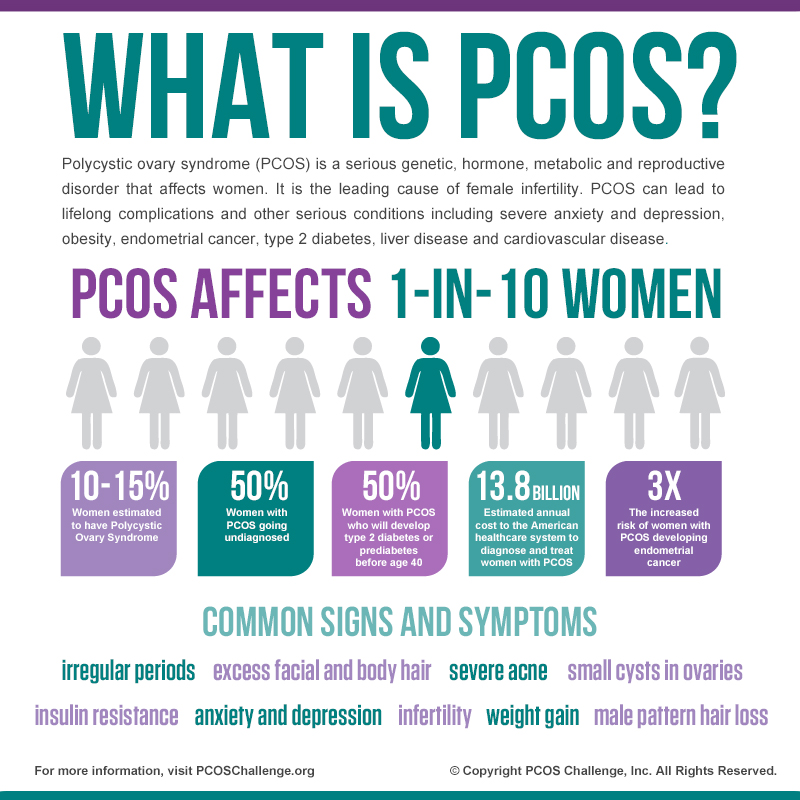 Polycystic Ovary Syndrome (PCOS) is a hormonal disorder that affects as many as 5-7 million women of reproductive age in the US alone. This is 10% of all reproductive-aged women! Over half of these remain undiagnosed. With that many women affected it seems like this disorder should be well known and understood!
Polycystic Ovary Syndrome (PCOS) is a hormonal disorder that affects as many as 5-7 million women of reproductive age in the US alone. This is 10% of all reproductive-aged women! Over half of these remain undiagnosed. With that many women affected it seems like this disorder should be well known and understood!
Unfortunately, many people have never heard of PCOS, and women often go undiagnosed each year. To combat this the National Polycystic Ovary Syndrome Association developed World PCOS Day of Unity and declared September PCOS Awareness Month.
If you follow us on social media, you will notice that the whole month of September will be devoted to PCOS awareness month. Our goal is to reach as many of these women as possible and to let them know that when they get to the root cause of their hormones, they can actually reverse many or all of their symptoms.
Even if you don't think that this is you, I encourage you to learn about it.... because I'd be willing to bet that you know at least 1 woman who is suffering from these symptoms without any idea that there are simple changes she can make to help!
What is PCOS?
According to Mayo clinic, PCOS is a “hormonal disorder common among women of reproductive age. Women with PCOS may have infrequent or prolonged menstrual periods or excess male hormone (androgen) levels.”
The androgen hormones can also cause weight gain (especially around the middle), acne, hair loss (on the head), as well as excessive hair growth on the face and body. The high androgen levels also make the ovaries develop numerous small follicles which fail to regularly release eggs. This is why PCOS is one of the leading causes of infertility! Women with PCOS can have just 1, or several of the above symptoms.
Does this sound familiar, but you are past your childbearing years? According to the Center for Disease Control (CDC), “This lifelong health condition continues far beyond the child-bearing years.”
How is PCOS Diagnosed?
Many women have ovarian cysts without having PCOS. It is also possible for women to have PCOS without having ovarian cysts. Confusing right?
In order for a doctor to diagnose you with PCOS you need to meet at least two of the following criteria.
- Lack of ovulation causing irregular (or no) periods.
- Higher androgen (male hormones) that may result in acne, hair loss on the head, hair growth on the face and back. This can be tested via labs, or simply visible in symptoms.
- Multiple small cysts on the ovaries visible on ultrasound.
The sooner a woman is diagnosed with PCOS, the sooner they can begin to address the issues impacting their disorder.
Health Factors that PCOS Can Impact
There are many health concerns that women with PCOS are at higher risk of developing. Because of this, I actually consider PCOS to be a blessing for 1 reason (I know if you are suffering from the nasty symptoms, this will be hard to swallow, but bear with me). PCOS can be a "Canary in the coalmine" diagnosis. Years ago, Coal miners brought Canaries into the coal mine for their safety. If the canary dropped dead, it meant it was time get out! Well the same can be seen for PCOS. While the symptoms are truly frustrating, an early diagnosis can lead to lifestyle change that could prevent a women from developing another serious disease later in life. Here are just a few of the conditions linked to PCOS.
- Insulin Resistance - women with PCOS are often not able to use their insulin effectively. This is why over 50% of those with PCOS develop type 2 diabetes. It can also result in gestational diabetes during pregnancy which puts both mom and baby at risk.
- Heart disease and high blood pressure - an increased risk for heart disease and high blood pressure have been found in those with PCOS
- Cholesterol and risk for stroke - those with PCOS tend to have high LDL (the ‘bad’ cholesterol). This can lead to blood clots that could result in a stroke or heart attack.
- Depression and anxiety - Those with PCOS are at greater risk for mental health issues like depression and anxiety. In fact, women with PCOS are 7 times as likely to try to end their lives than other women.
- Cancer - Women with PCOS risk for endometrial cancer is three times more than other women. They may also have an increased risk for ovarian and breast cancer

What You Can Do
While there is no cure for PCOS, there are many things you can do to address the root causes of the condition and control your symptoms.
If you think you may have PCOS, the first step is to get an accurate diagnosis. Not all doctors are equipped to make this diagnosis, so it can be valuable to work with a specialist. (Please feel free to reach out to me. I would be glad to lead you in getting an accurate diagnosis.)
Once you have a clear diagnosis, it will be beneficial to find your root cause. For many women with PCOS the root cause may be any combination of the following issues
- insulin resistance
- thyroid
- adrenals
- inflammation
When the underlying cause(s) are addressed, many of the symptoms will become manageable and even disappear altogether.
I love helping women understand their bodies better and walk with them on their journey to health. For more information on PCOS, consider signing up for our free online PCOS workshop that we will be offering Friday, October 1st at NOON! If you know someone who you think might be struggling with this, please pass along this information. I'd love to help them!
Dr. Jamie

